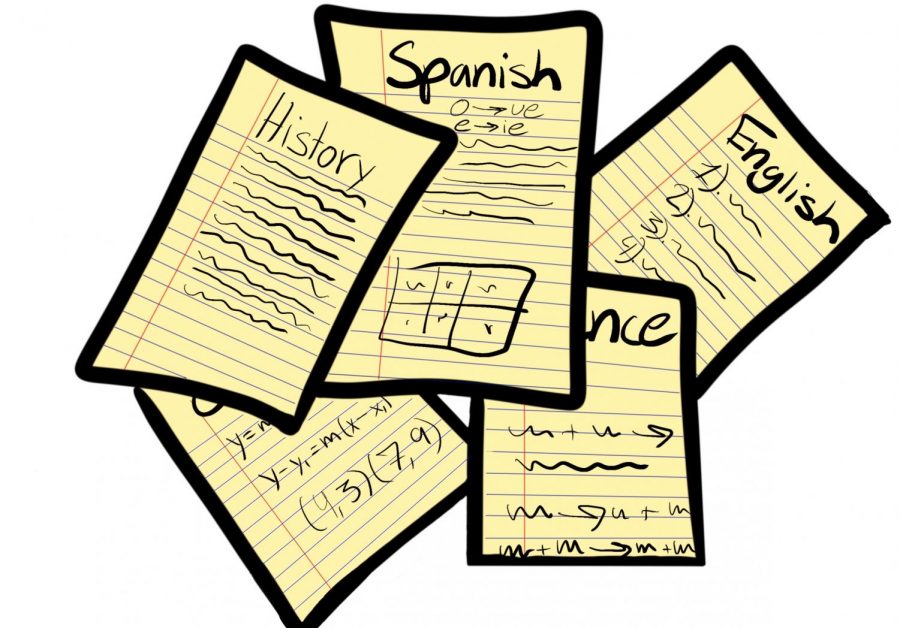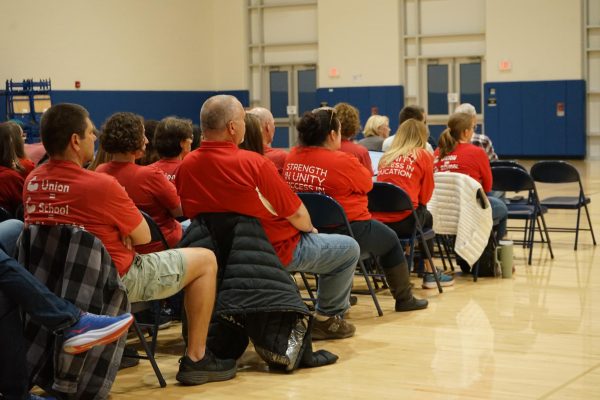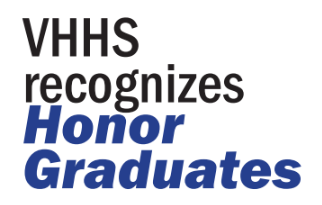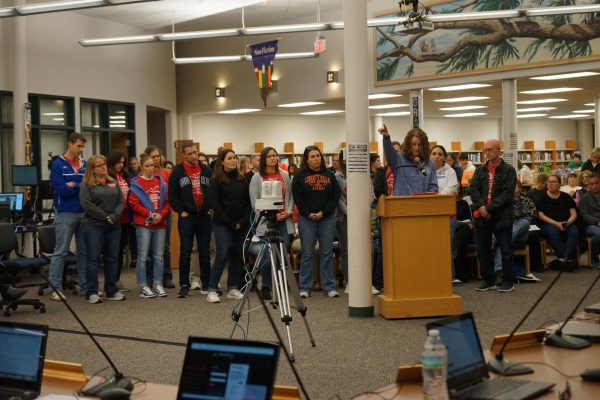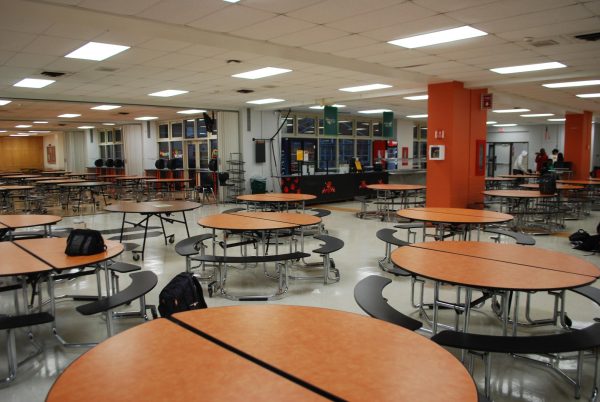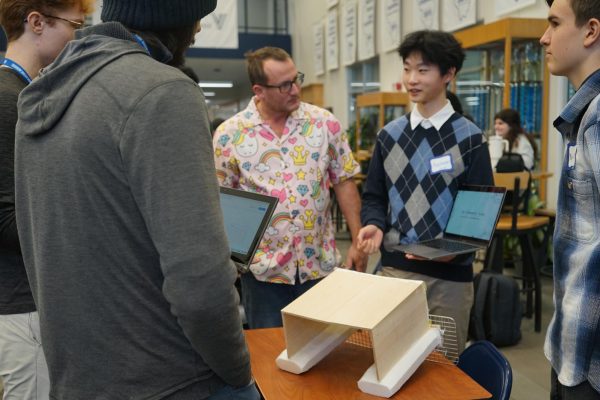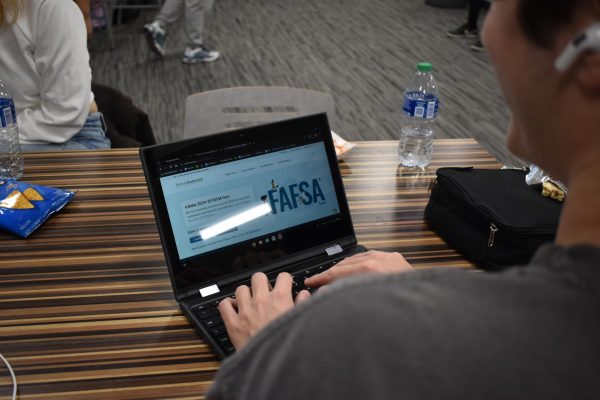The “final” countdown: Students prepare for new final exam format
Many students know that the closer we get to winter break, finals week is also approaching. But with the many changes the school has experienced, whether it be because of the pandemic or through improving policies, it is difficult to tell how exactly finals will function this year.
Joseph O’Brien, the Assistant Principal for Curriculum and Instruction at VHHS helped clear the air on how teachers are organizing exams this year. In terms of scheduling, the three-day week before winter break (Dec. 20, 21 and 22), will act as a “finals week” but they will just be normal eight period days instead of the traditional final exam week schedule. But students won’t have to worry about taking all of their assessments in only one day, reassured O’Brien.
“We’re encouraging teachers to consider the impact on students and place these end of the semester finals, assessments, or projects in a way that doesn’t put everything on the last day of the semester,” he said.
O’Brien also clarified how grades will be distributed in terms of the different ways teachers can assess students.
“Cumulative final exams should count for up to 10% of [students’] semester grades. Other end of semester assessments would count like other activities/projects/assessments throughout the semester,” he said.
There will also be different types of assessments this year, according to O’Brien. There are essentially three categories. The first is a cumulative assessment, which is like a traditional final exam that covers everything you learned in the first semester, but without the traditional final exam schedule. The second is a “last unit” assessment, which is simply a test on what you learned in the last unit you were studying. And the third is a culminating project on a topic that you studied throughout the semester that is due or presented near the end of the semester.
“It’s going to be a variety of experiences depending on the course and what either the individual teachers or the team of teachers that teach that course together have decided is the best way to end a semester,” O’Brien said.
Culminating projects are a generally newer concept that many teachers are starting to utilize, and they also have many benefits to students in comparison to exams.
“It’s so hard to cover months of work and preparation in a 90 or 45 minute test,” said upperclassman Noah Grijnsztein (11), who had these types of projects before. “Projects are nice because you have time to make sure that you are doing your best work and you won’t just have an off day on a test.”
While projects can be beneficial, they also have setbacks — they take a lot of time and energy and can start to pile up. These setbacks can make it difficult for students, which is why having a mix of both projects and exams is great, said Grijnsztein.
O’Brien also gave insight on why there are changes being made to the organization of finals and other summative assignments.
“I think these changes are less about the pandemic and more about changes in instructional practices and what we value in terms of demonstrating learning,” he said. “It would be unfair to say [these changes] are not a result of some of the experiences of the pandemic that opened our eyes to these things, but I don’t think there’s a direct correlation.”
There are also many reasons to be concerned about preparedness for finals, according to Sarthak Agrawal (10). For freshmen it might be difficult because they are new, but sophomores may feel disadvantaged because they have yet to take a final in person due to remote school.
“Finals are more stressful this year because they feel more real,” Agrawal said. “Last year on Zoom, finals felt more like normal tests than they did culminating exams. This year, I have to try a lot harder to get an A in my classes, and I feel that this will be the same for finals.”
Grijnsztein gave his insight on how underclassmen who don’t feel confident can get ahead on final exams. He is a junior who consistently received good grades on previous final exams.
“I would say to get on top of studying weeks in advance and to schedule yourself time to study. Google Calendar can be great for reminders or for scheduling your study time,” he said. “Also use a finals calculator to see what grade you would like to get in class; it will help you know where to spend your time studying.”
Staying consistent with healthy habits while studying is also essential, according to Grijnsztein.
“Make sure to take breaks to keep yourself fresh; fatigue is almost as bad as not studying. Try to be relaxed and not stressed out as best as you can,” he said.
Ultimately, making sure you’re as prepared as you can be and trusting your teachers to know how to assess you will be your best bet in taking on the stress of finals. O’Brien spoke in support of teachers who are organizing finals.
“Something that I believe in quite a bit is that teachers know the best as to how to move their students in their learning and also how to assess how that learning is happening,” he said.

